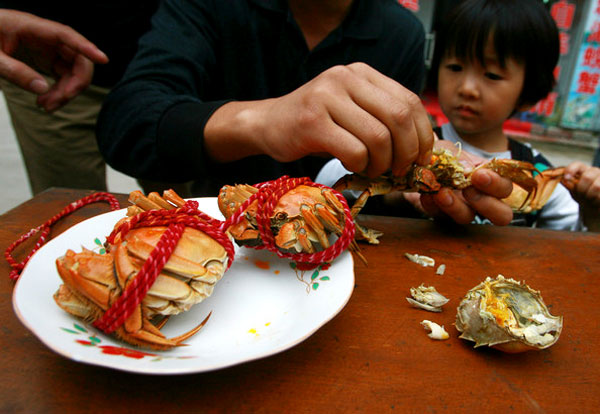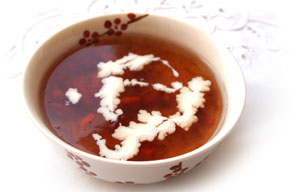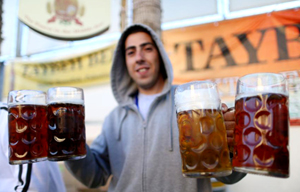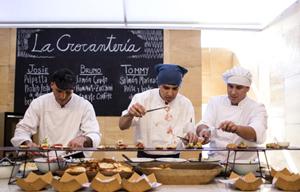
 |
|
People enjoy steamed hairy crabs at a restaurant in Suzhou of Jiangsu province, China. [File photo] |
Chinese people put a high value on social contact. Holidays are considered the proper time to nurture relationships and bond with old and new friends.
But this year, disciplinary departments were urged to tighten supervision and enforcement of discipline to reduce corruption. Practices such as the use of public funds to buy gifts, hold banquets and pay for holidays, as well as extravagance and waste, are strictly banned.
High-end wine and mooncake markets have also been hit.
Nevertheless, gift-giving persists — albeit more covertly — as shopping voucher sales have been spectacular.
A mall in Nanjing, capital of Jiangsu Province, reported 137 customers buying vouchers worth 500 or 1,000 yuan each and asking for office supply invoices.
Social scientists say the cooling of the gift market has proved the success of the government's anti-corruption initiatives.
But only by perfecting a long-term mechanism in guarding against and punishing corrupt behavior can we have a clean government, said Wang Shiyi, director of the research center on clean politics education with the Party School of the Communist Party of China's Jiangsu Provincial Committee.

2013 Chinese New Year |

Hidden dragons, crouching tigers |

Soap beans, silver ears and peach gum |

Special:Winter Solstice |

Taybeh Oktoberfest beer festival marked in West Bank |

Grape harvest season in France |

China greets harvest days for autumn crops |

'Masticar' gastronomic fair held in Argentina |